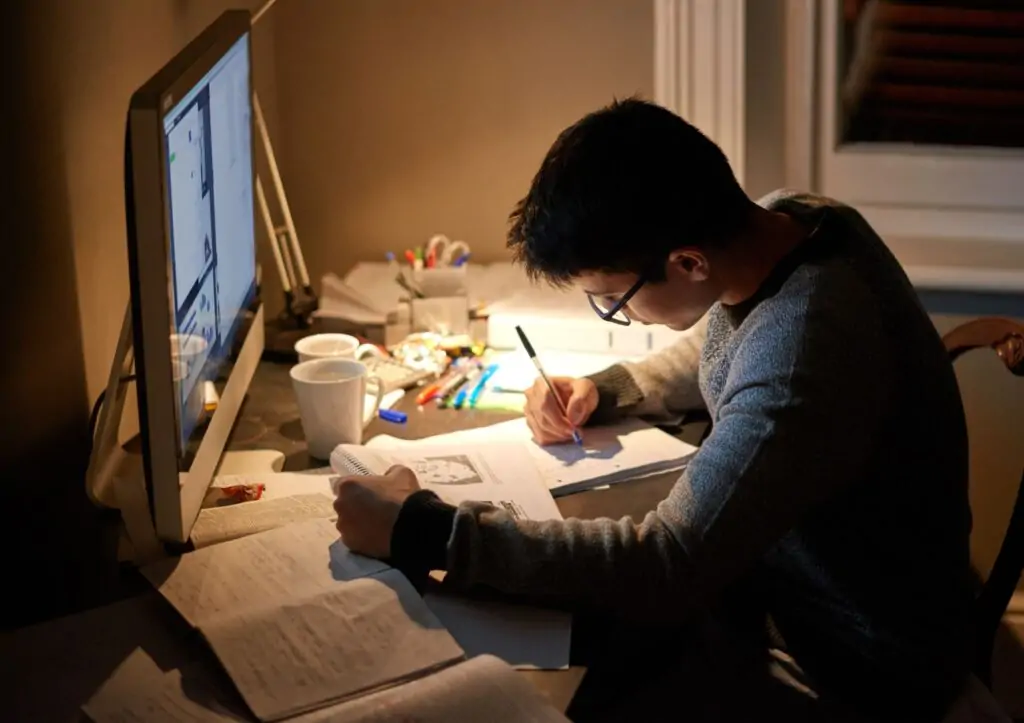 When people imagine how tutoring sessions go, they picture constant explanations, encouragements, and hints. What I have learned during my time tutoring is that methods like that are not always the most successful in ensuring the best education for my students. A far less obvious strategy which can be very effective for the larger majority of my students is silence. Calculated pauses throughout the session can create better learning environments, where the student learns not to depend on the tutor, but to attempt questions themselves and not constantly jump to the tutor for answers. Silence teaches the children that they have to try stuff themselves in order to progress. They have to show their capabilities without the hand-holding and guidance (which can mostly be the easy way out). Students normally expect instant help from their tutors the moment they have even the slightest misunderstanding of the question. While this can be due to their dependence on the tutor, it can build bad habits, unintentionally training students to rely too much on external guidance or an easy fix/solution. As tutors, by resisting the urge to jump in and help, and instead sit there and let the students try again and figure it out themselves, we give our students the opportunity get used to not always knowing. This helps them build problem solving and memory skills (as well as other skills) which can help them finish their work themselves, not always relying on others to help. This method also portrays a level of trust, like by sitting there in silence, a tutor has confidence that the student knows what they are doing and are very capable of doing it themselves. This simple act of trust can give the students the confidence that they need to properly attempt and complete the question. Of course, using this method is not always effective, and the tutor must properly judge when they are able to be silent, otherwise the student will not make any progress, as they really do not understand how to make any progress on the problem at hand. Silence is an important tool it allows the student to reflect and learn, gaining confidence in the process, but it must be used correctly.
When people imagine how tutoring sessions go, they picture constant explanations, encouragements, and hints. What I have learned during my time tutoring is that methods like that are not always the most successful in ensuring the best education for my students. A far less obvious strategy which can be very effective for the larger majority of my students is silence. Calculated pauses throughout the session can create better learning environments, where the student learns not to depend on the tutor, but to attempt questions themselves and not constantly jump to the tutor for answers. Silence teaches the children that they have to try stuff themselves in order to progress. They have to show their capabilities without the hand-holding and guidance (which can mostly be the easy way out). Students normally expect instant help from their tutors the moment they have even the slightest misunderstanding of the question. While this can be due to their dependence on the tutor, it can build bad habits, unintentionally training students to rely too much on external guidance or an easy fix/solution. As tutors, by resisting the urge to jump in and help, and instead sit there and let the students try again and figure it out themselves, we give our students the opportunity get used to not always knowing. This helps them build problem solving and memory skills (as well as other skills) which can help them finish their work themselves, not always relying on others to help. This method also portrays a level of trust, like by sitting there in silence, a tutor has confidence that the student knows what they are doing and are very capable of doing it themselves. This simple act of trust can give the students the confidence that they need to properly attempt and complete the question. Of course, using this method is not always effective, and the tutor must properly judge when they are able to be silent, otherwise the student will not make any progress, as they really do not understand how to make any progress on the problem at hand. Silence is an important tool it allows the student to reflect and learn, gaining confidence in the process, but it must be used correctly.
Lishai Rubinstein

